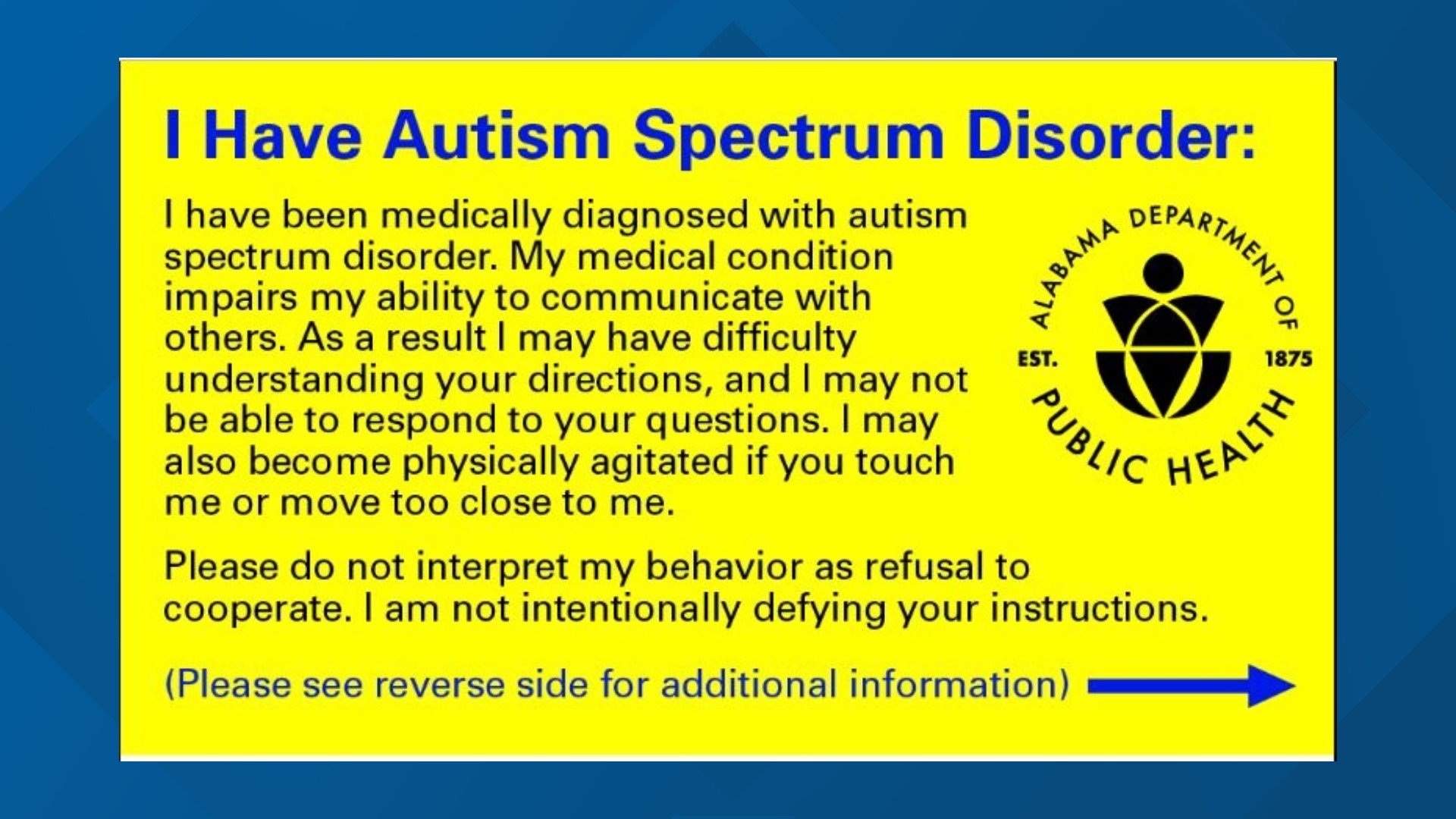HUNTSVILLE, Ala. — Routine traffic stops or any interaction with law enforcement can be stressful for anyone, but those with disabilities may have a more difficult time. Loud sirens, bright lights, these are just a few signs of a traffic stop.
Now imagine that you are on the Autism Spectrum and everything you see is causing sensory overload. Jenny Morris with Autism Support of Alabama heard many disheartening cases when getting this act passed in 2015
"Often, we were hearing experiences adults and people that had children with Autism, they would be pulled over in a traffic stop, and that's already a nerve-wracking experience for any of us," Morris states. " And then combine it with someone that has Autism and, you know, there's not a lot of training, you know. We're taught how to drive. We're not taught how to handle a traffic stop."
Alabama created and implemented the first state-recognized Autism Identification Card in the United States, and county health departments issue them.
Alabamians who have a diagnosis that falls within the autism disorder spectrum may apply for an identification card that can assist in their interactions with first responders and law enforcement officers during potentially stressful situations.
Wording on the card explains that the individual falls within the autism spectrum and may have difficulty communicating or understanding directions. The card further states that the person may become agitated if touched because of his or her medical condition.
Before a card is issued, a health care provider (such as a psychologist, pediatrician or family practice doctor) must verify that the person is on the autism spectrum. The cards also contain the contact information for someone who can confirm the cardholder’s diagnosis, as well as give information that may help calm the individual
"It is available for anyone on the spectrum," Morris states. "We partnered and we helped the legislation along back in 2014 to get this going. You just have to have a diagnosis and you have to have a recommendation from either your pediatrician, your psychiatrist, or your regular general practitioner."
While this method helps with police interactions, the hope is that this card helps in all interactions
" Well, this does provide a level of a sense of safety you know." Morris states. "If someone is able to drive, you can also instruct them in in a situation where their safety might be compromised to say, you know, if you're in any situation to show your ID, you should always have the ID card along with your ID presented to let people know that you have autism. What would be great is people and other outlets of our society were able to recognize the yellow card as well, and that is our hope also."
For children and adult family members, parents/caretakers are to take their child or adult family member and a government issued form of identification to apply.
The adult, child or adult family member diagnosed with autism spectrum disorder must be present to receive the billfold-sized card. Health department employees issue the card upon receipt of a completed application and payment of $10. For a link to the application, visit the Autism Support of Alabama website.
The identification cards were developed as a result of Act 2014-344, passed during the 2014 session of the Alabama Legislature.

